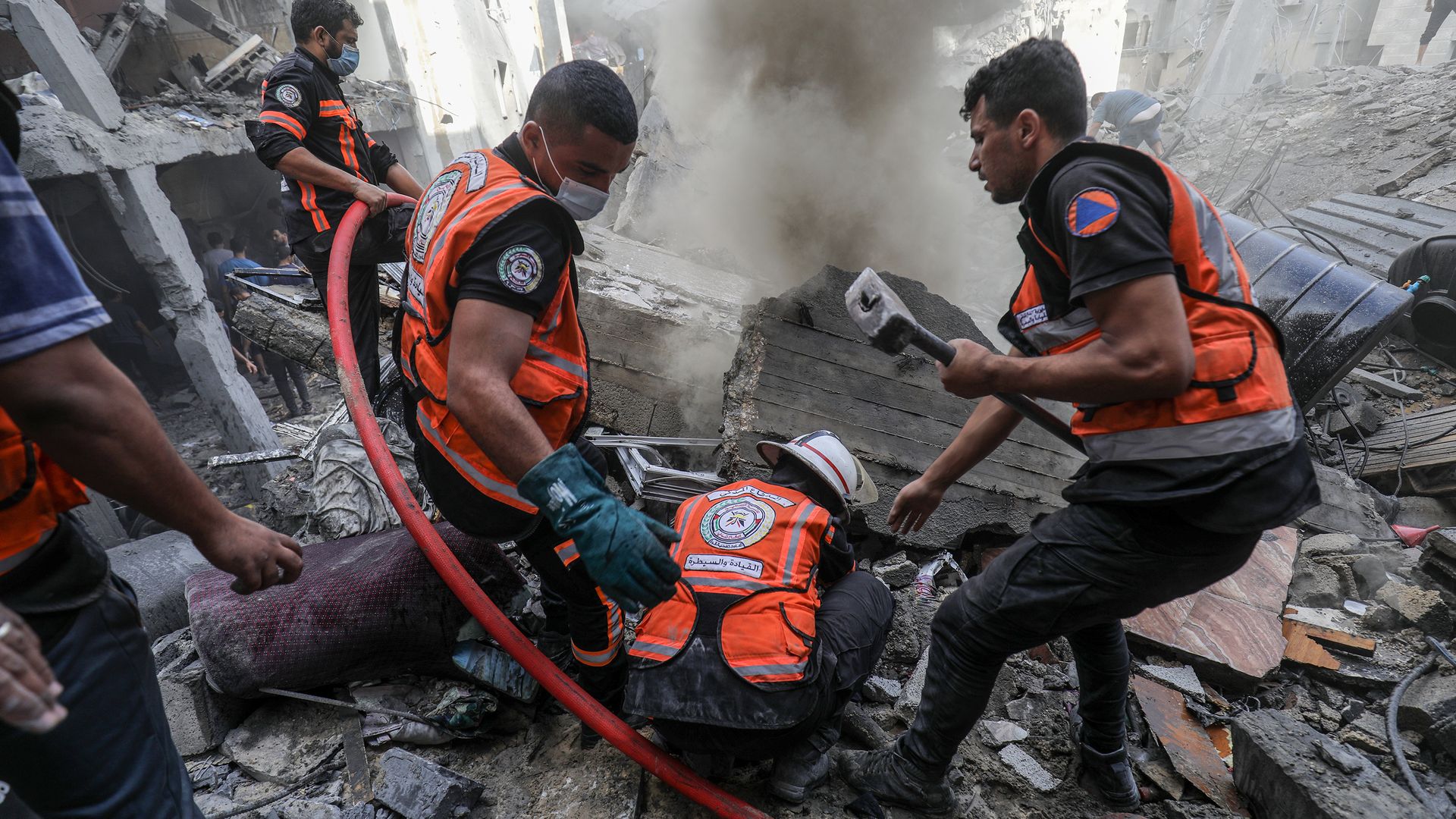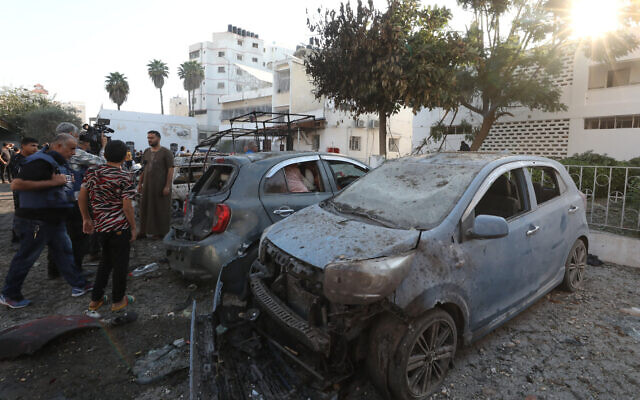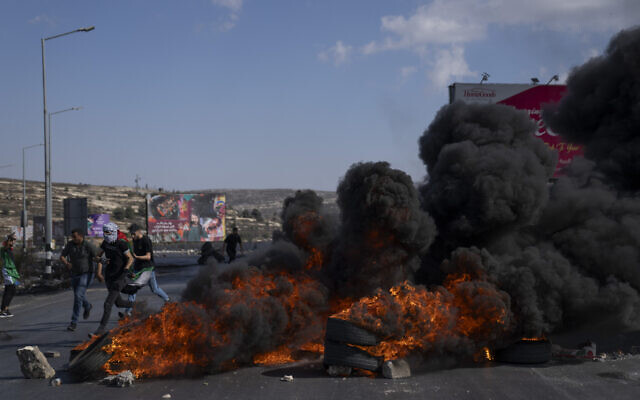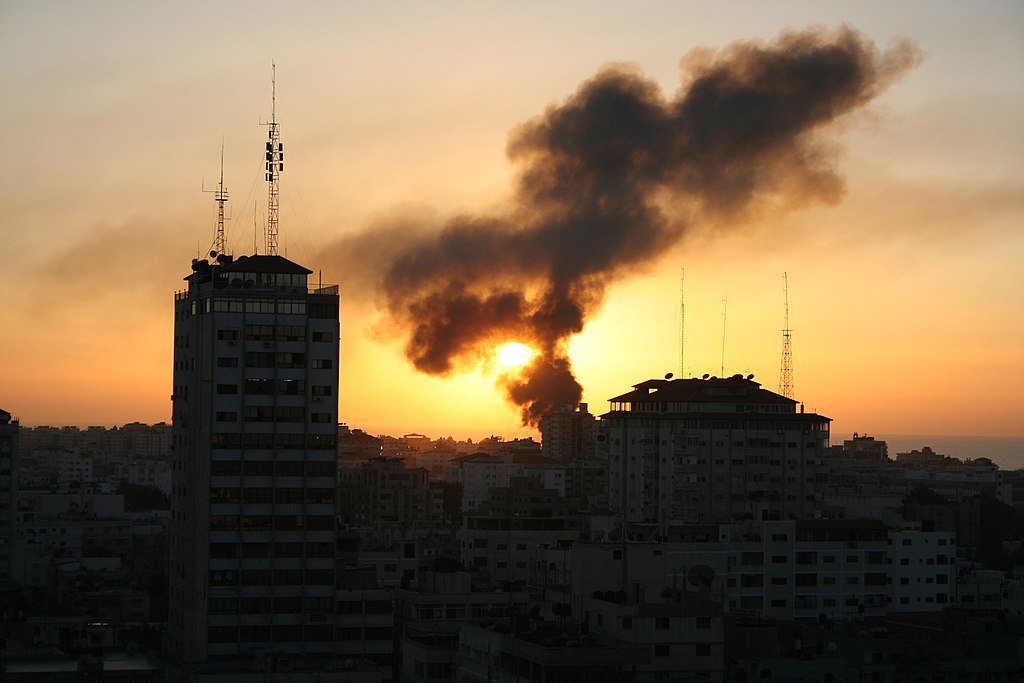 |
|
I hope you are doing well during this difficult time. As the situation in Israel and in Gaza continues to escalate, J Street will continue to send updates and resources, as well as briefing invitations and recommendations for Congressional action.
The J Street crisis response page will continue to be updated with the latest statements and resources. In the meantime, please don’t hesitate to reach out with any questions about the situation in Israel and in Gaza, Congressional action, or any other concern.
Best,
Hannah
—
Hannah Morris
She/Her
Director of Government Affairs, J Street
Cell: 832-606-1817
J Street’s Congressional Resource Page
|
This week on j street
|
|
|
| STATEMENT |
|
J STREET STATEMENT ON ONGOING ISRAEL-HAMAS WAR, ISRAELI-PALESTINIAN CALAMITY
|
| Read more → |
|
|
|
|
|
| STATEMENT |
|
J STREET URGES SWIFT SENATE CONFIRMATION OF JACOB L. LEW AS AMBASSADOR TO ISRAEL
|
| Read more → |
|
|
|
|
|
| WEBINAR |
|
Speaker Emerita Nancy Pelosi in conversation with J Street
|
| Watch → |
|
|
|
|
|
What we’re reading
|
Israel to allow entry of humanitarian aid to Gaza from Egypt after U.S. pressure
|
 |
| Israel’s war cabinet on Wednesday approved the entry of humanitarian aid into Gaza from Egypt after pressure from the U.S. and other countries. Following Israel’s decision, President Biden said later Wednesday that Egyptian President Fattah el-Sisi agreed to allow 20 trucks of humanitarian assistance through the Rafah Crossing into Gaza… Israel’s decision to allow the aid to flow came after an hour-long meeting with Biden in Tel Aviv. Biden said while in Israel that he welcomed the decision and stressed aid would be suspended if Hamas tried to take control of it. Calls have been growing for aid to be allowed into Gaza as the humanitarian crisis in the tiny enclave worsens after 12 days of war. Israel in the early days of the war imposed a “complete siege” of Gaza, cutting electricity and blocking the entry of food, fuel, water and other supplies. Since then aid groups have warned overwhelmed hospitals were running out of medicines and other vital supplies… A senior Israeli official said that during his meeting with the Israeli war cabinet, Biden asked that Israel allow the entry of humanitarian aid to Gaza and explained it would help in maintaining international support for the operation against Hamas… Biden also announced a $100 million U.S. aid package for the Palestinian population in Gaza and the occupied West Bank… Biden and Netanyahu also agreed to press for the Red Cross to be able to visit the hostages. Biden in his remarks called for such visits and said the U.S. will work with its partners worldwide to bring the hostages home. “There is no higher priority for me as the president of the United States,” Biden said. Americans are among those being held hostage. |
| read more |
Gaza hospital blast: Initial U.S. intel assessment is Israel “not responsible”
|
 |
| The current U.S. assessment of Tuesday’s deadly explosion at a hospital in Gaza is that Israel was “not responsible,” according to a spokesperson for the National Security Council. The explosion set off a furious response — including large protests in Jordan, Lebanon and elsewhere in the hours before President Biden’s visit to the region. Biden said earlier Wednesday that it appeared the “other team,” not Israel, was to blame. “While we continue to collect information, our current assessment, based on analysis of overhead imagery, intercepts and open source information, is that Israel is not responsible for the explosion at the hospital in Gaza yesterday,” said NSC spokesperson Adrienne Watson. The Democratic and Republican leaders of the Senate and House intelligence committees both issued statements saying after being briefed on the matter that they were confident the blast was the result of a failed rocket launch and not due to Israeli military action… U.K. Foreign Secretary James Cleverly also cast doubt on the idea that Israel was responsible. “Last night, too many jumped to conclusions around the tragic loss of life at Al Ahli hospital. Getting this wrong would put even more lives at risk. Wait for the facts, report them clearly and accurately. Cool heads must prevail,” he wrote on X. |
| read more |
On Israel’s northern border, Hezbollah missiles fly and civilians flee
|
 |
| One hundred fifteen miles from Gaza, Israel was racing to harden its border with Lebanon on Wednesday, preparing for a potential second front in its war against Islamist militants… Officials were positioning military forces up and down the border and clearing the few remaining civilians from 28 communities within a buffer zone that extends just over a mile from the Lebanese line… Forces on both sides have exchanged fire multiple times in the days since Hamas infiltrators launched their surprise Oct. 7 attack on Israel, killing at least 1,400 people. Hezbollah says eight of its fighters in the border region have been killed in Israeli strikes since Tuesday. An elderly couple was killed in a rural Lebanese town. An Israeli shell is believed to have killed a Reuters videographer covering the fighting there last week. The Israel Defense Forces said it was investigating the incident, which injured six other journalists. The IDF says at least five Israelis have been killed, including three soldiers in a shootout with a Hezbollah gunman who infiltrated the area. The lone civilian fatality, a Palestinian citizen of Israel, was hit Sunday while working at a construction site in this hilltop town just yards from the border fence… The international community is straining to contain the risk of a wider battle between Israel and Hezbollah, the Shiite militia that is Lebanon’s most dominant political and military force. The United States dispatched warships to the region last week, hoping the show of force would deter the group — and its Iranian allies — from launching a full-scale attack. But a humanitarian crisis in Gaza, amid punishing Israeli airstrikes that have killed more than 3,000 people, is stoking anger in Lebanon and across the Arab world and could push Hezbollah to escalate. |
| read more |
‘No More Safe Places in Gaza’: Evacuees Face Airstrikes in North and South
|
 |
| Hundreds of thousands of Palestinians who heeded the Israeli military’s order to evacuate portions of the Gaza Strip are confronting deadly airstrikes from Israeli warplanes even after they’ve moved. And a grim question hung over the enclave on Tuesday: Was there anywhere safe to go? Last week, after the deadly Oct. 7 cross-border attacks by Hamas, Israel ordered all of Gaza’s northern residents — some 1.1 million people — to abandon their homes ahead of an expected ground invasion of the strip and to head south. Hundreds of thousands obeyed, leaving by car, motorcycle and even on foot. But on Tuesday, Israel said it had intensified its bombing in the southern Gaza cities of Khan Younis and Rafah, just as the residential buildings there were swelling with new arrivals and as food, water, medicines and other supplies were running out. Asked why Israel continued to strike in southern Gaza after ordering people to evacuate there, Maj. Nir Dinar, an Israeli military spokesman, said that Israel sought to avoid civilian casualties but that members of Hamas were hiding out among Gazan civilians. He added that southern Gaza was relatively safer than the north, but not entirely safe… The U.N. Office of the High Commissioner for Human Rights said in a statement on Tuesday that Israel’s evacuation order, combined with an imposition of a “complete siege” on Gaza, might amount to a forcible transfer of civilians, which is illegal under international law. |
| read more |
Deadly violence surges in West Bank as war rages in Gaza region
|
 |
| While the world is focused on the war in Gaza since the Hamas terror group’s devastating assault on Israel, tensions have risen in the West Bank, where 55 Palestinians were killed over the past week in clashes with Israeli troops, arrest raids and attacks by Jewish settlers, according to the Palestinian Authority’s health ministry. UN monitors said it was the deadliest week for Palestinians in the West Bank since at least 2005. Since Hamas’s mass incursion into southern Israel, in which terrorists burst across the border into Israel from the Gaza Strip by land, air and sea, killing over 1,300 people, and abducting some 150-200 hostages of all ages, Israeli forces have held the West Bank under a tight grip, closing crossings into the territory and checkpoints between cities, measures they say are aimed at preventing attacks… There have been several clashes between IDF forces and Palestinians in the West Bank in the days since, with the army reporting at least 10 attempted terror attacks. Friday was a particularly deadly day, with 16 Palestinians killed in different incidents in the West Bank, according to PA figures. Police said four of those were shot and killed by officers after setting off explosive devices in an apparent attempt to breach the West Bank security barrier… The renewed crackdown comes as Israel is concerned about the conflict escalating into a multi-front war, particularly the possibility of Lebanon’s Iran-backed Hezbollah terror organization joining the battle. But Palestinians claim the latest Israeli measures in the West Bank have only further blurred the line between security forces and radical, violent settlers. Israel’s National Security Minister Itamar Ben-Gvir, a far-right settler with a long history of anti-Arab incitement, responded to the Hamas attack by distributing more weapons to the settler population and tasking settlers with security. |
| read more |
Biden Warns Israel Not to Occupy Gaza
|
 |
| President Biden warned Israel in an interview aired on Sunday not to reoccupy Gaza, his first significant public effort to restrain America’s ally in the wake of the Hamas assault that killed more than 1,300 people, including at least 29 Americans. Mr. Biden has offered staunch support for Israel since the Oct. 7 attack and refused to criticize Israel for its retaliatory siege of Gaza, the coastal enclave controlled by Hamas, even as U.N. officials have warned of a humanitarian crisis there. But in the new interview, he cautioned against a full-scale occupation of Gaza. “I think it’d be a big mistake,” Mr. Biden told “60 Minutes” on CBS in a conversation taped on Thursday and aired on Sunday night. “Look, what happened in Gaza, in my view, is Hamas and the extreme elements of Hamas don’t represent all the Palestinian people. And I think that it would be a mistake for Israel to occupy Gaza again.” But “taking out the extremists” there, he added, “is a necessary requirement”… “Israel has to respond,” Mr. Biden said. “They have to go after Hamas. Hamas is a bunch of cowards. They’re hiding behind the civilians. They put their headquarters where civilians are and buildings and the like.” But he said he was convinced that “the Israelis are going to do everything in their power to avoid the killing of innocent civilians.” |
| read more |
Is the U.S. getting involved as Israel fights Hamas in Gaza? What to know.
|
 |
| The United States has pledged unequivocal support for ally Israel, underlining its right to defend itself after an unprecedented incursion by Hamas militants from the Gaza Strip killed at least 1,400 people and wounded about 4,562. In a historic show of solidarity, President Biden made a visit Wednesday to Israel, where he was greeted at the airport by Israeli Prime Minister Benjamin Netanyahu and promised to redouble U.S. military assistance to the country. “Palestinian people are suffering greatly as well,” he said, and announced that a deal had been struck with Israel to allow humanitarian aid to flow into the Gaza Strip from Egypt… Biden’s forceful remarks — and promise of military aid — underscore the close, historical relationship between Israel and the United States… Here’s what to know about relations between the United States and Israel and what Washington has said so far about Israel’s war with Gaza. |
| read more |
Analysis | The World Can No Longer Sideline the Israeli-Palestinian Issue. But the U.S. Doesn’t Have to Be the Only Broker.
|
 |
| In September 2020, former President Donald Trump hosted a White House signing ceremony to celebrate the Abraham Accords, a series of peace agreements his administration helped broker between Israel and several Arab states. In a moment of triumph, Trump hailed these historic peace deals as “the dawn of a new Middle East.” On Oct. 7, 2023, a new Middle East appeared to emerge. But it was not the one that Trump, or President Joe Biden after him, hoped for… Israel has endured its fair share of violence over the years. Yet the shocking attacks by Hamas have ushered in a grim new chapter in the region that highlights a bitter truth: While Israel’s normalization with other Arab states is an important diplomatic achievement, it hasn’t brought Israel peace or security… ultimately, as the events of Oct. 7 proved, all these efforts will be continually at risk without a credible framework for negotiations between the Israelis and Palestinians that breaks the entrenched cycle of violence and retaliation that casts a shadow over regional stability. Blinken stressed while visiting Israel this week that a deal between Israel and Saudi Arabia “can’t be a substitute” for resolving the differences between Israelis and Palestinians through negotiations toward a two-state solution. |
| read more |
Opinion | On Strategy, Law, and Morality in Israel’s Gaza Operation
|
 |
| With the possible exception of the Demilitarized Zone in the Korean peninsula, there is no geographic line in the world across which life changes more dramatically over a shorter distance than the border of Israel and the Gaza Strip… I start with this portrait to emphasize the extreme asymmetry of the conflict now unfolding in Gaza: the truly deranged nature of Hamas’s decision to initiate a war against the region’s preeminent military power—and to do so in a fashion of almost unimaginable brutality that necessarily brings the full weight of Israeli military power against a territory, teeming with civilians, which the militia cannot possibly hope to defend; the impossibility of an effective Israeli military operation in Gaza without horrifying civilian death and destruction; and the concurrent impossibility of refraining from conducting such an operation given the extreme proximity of these two populations across this line and the need to prevent similar atrocities in the future. These are the conditions against which we have to consider the strategy, law, and morality of Israeli military operations in Gaza—about which I make eight related points in this article… Let’s start, then, first, with the highest-altitude moral point: that when a state is attacked militarily, it will respond militarily to the extent that it can. This is legitimate both morally and legally, and it makes intuitive sense strategically as well. The state’s most fundamental purpose is the protection of its citizens. A state that fails militarily to defend its people forsakes its reason to exist. |
| read more |
|